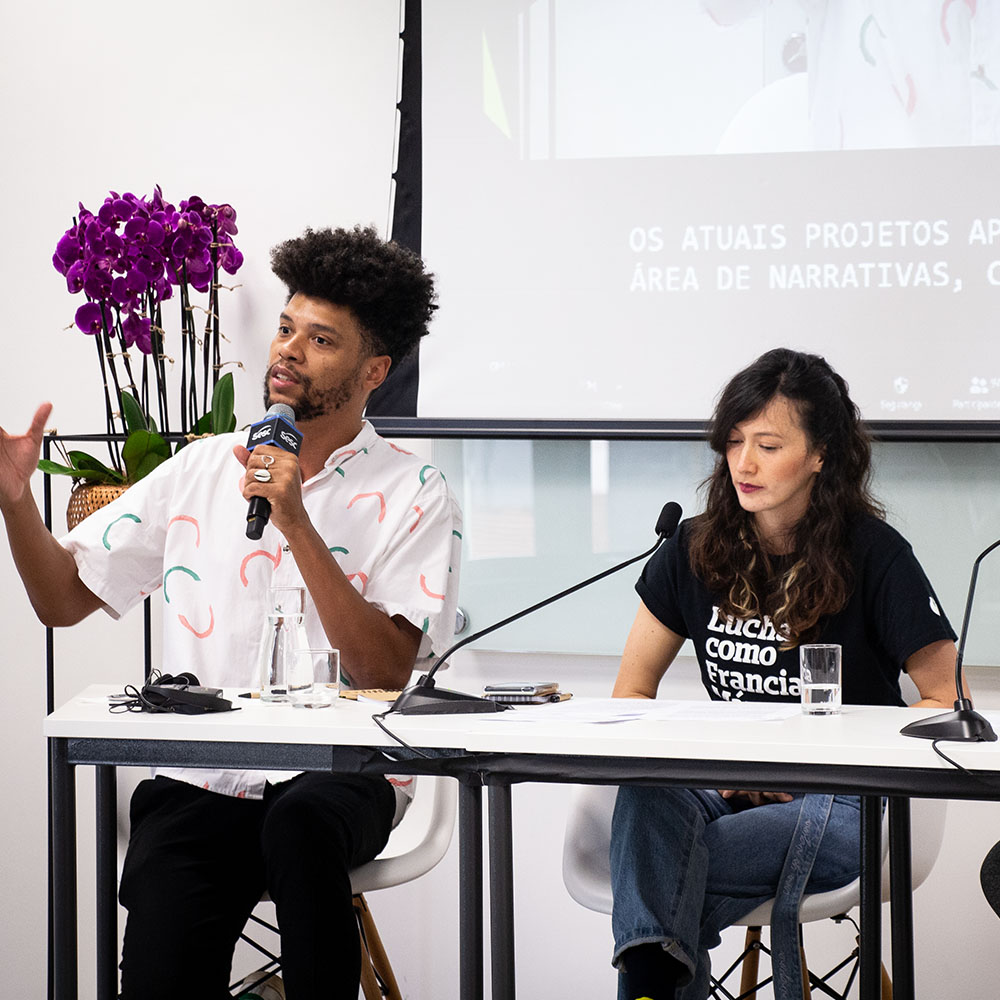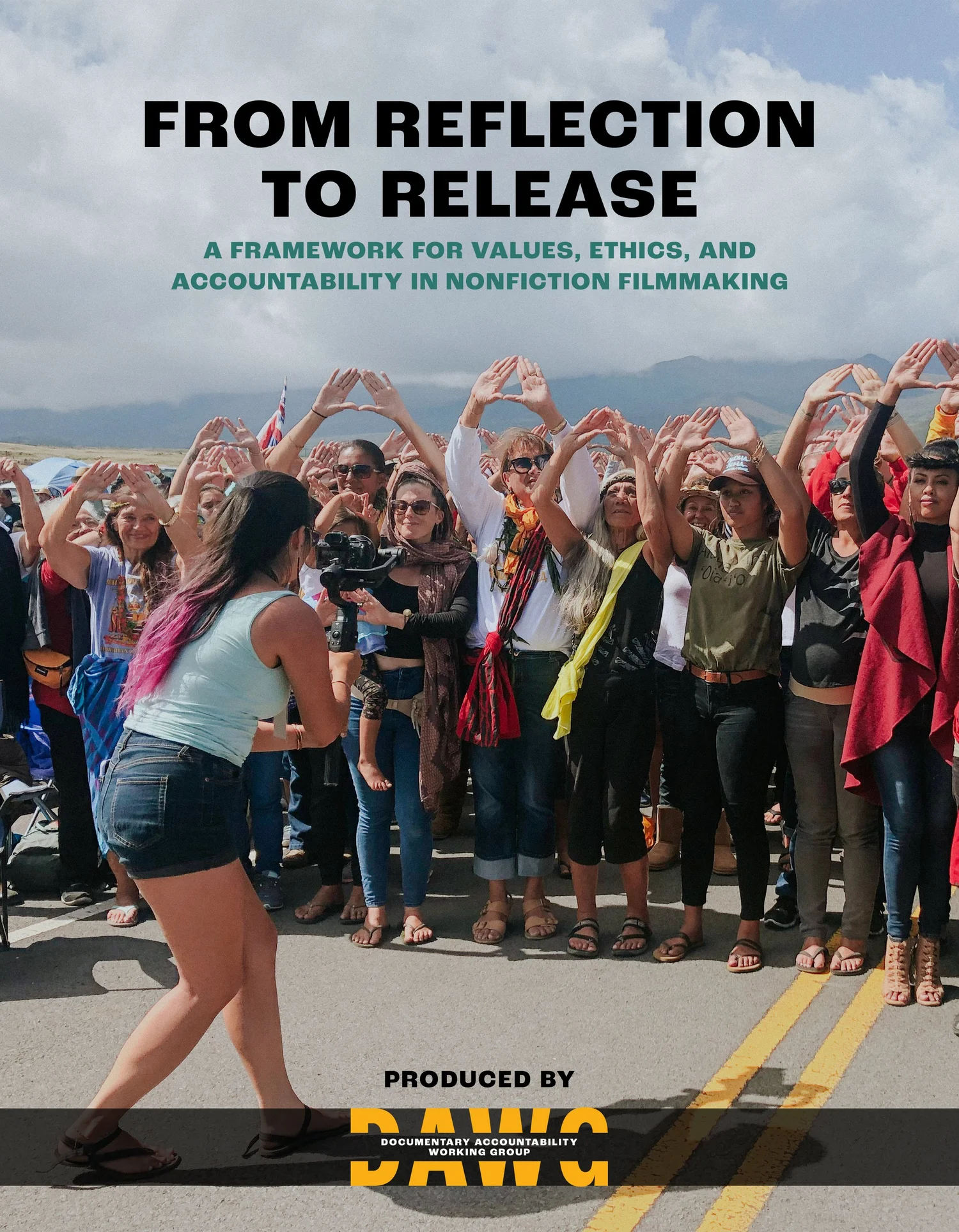Filmmaking as Emancipatory Practice
Impact is about more than the story told by your film or the outcomes of a campaign. It’s also about the process: how we work together, how people feel about their participation, and how and with whom we share our films. But historically, the way we have produced, financed, and distributed documentaries has reproduced social inequities, and we need to stop.
But how?
Invest, don’t extract.
Arthur Pratt — a pastor, playwright, and filmmaker who runs a media centre in Freetown, Sierra Leone — believes filmmakers need to stop making movies about people without hiring people from the community to work alongside them. WeOwnTV, which Pratt leads, is the outcome of an accountability process that he engaged in with filmmaker Banker White, who had travelled to Sierra Leone from the United States to produce and distribute his film, Sierra Leone’s Refugee All Stars. That was two decades ago. Today, WeOwnTV — which is African-owned and run — continues to produce work and train local filmmakers to develop their storytelling skills, interrupting the all too prevalent exploitative cycle.
Learn from the experts — and share what you learn.
The Accessible Filmmaking Guide was an outcome of filmmakers Peter Middleton and James Spinney’s commitment to ensure the accessibility of their film Notes on Blindness, based on theologist John Hull’s original audio recordings of his journey into blindness. Their goal required Middleton and Spinney to work closely with visually impaired people to design all aspects of the project. To achieve impact well beyond their own film, the filmmakers chose to share what they learned with other filmmakers as well as those in the position to support and distribute future projects.
Create a mutually beneficial experience.
Several organizations have turned their attention toward addressing the legacy of participant exploitation. In Australia, the team at Unquiet Collective works in “deep collaboration” with participants throughout the filmmaking process, ensuring that both the process and its outcomes are mutually beneficial. Each of their projects adheres to a core set of principles, including centering those with lived experience; encouraging collaboration, systems thinking, and intersectional understanding; ensuring that team members, partners, and participants can “share their beliefs and practices without fear of their identities being denied, challenged, and threatened;” and supporting others in the field to succeed.
Confront your power as a storyteller.
The Documentary Accountability Working Group (DAWG) produced a framework that includes six core values for nonfiction filmmaking that can support equitable and just filmmaking with, for, and about marginalized, vulnerable people. The team at DAWG believes it starts by honestly reflecting on the question of whether you are truly the best person to tell a story. If you believe you are and choose to move forward, they say you must acknowledge your positionality, including the power you wield when you pick up a camera and point it in another person’s direction.
Take care of each other.
Peace is Loud “harnesses the power of storytelling by women, trans, and nonbinary change makers to mobilize strategic collective action grounded in equity and care. Working in partnership with Documentality, which is invested in supporting mental wellbeing in the documentary field, Peace is Loud create a set of practical resources to help filmmakers prioritize the health and wellbeing of film participants. “We do this work because we know that with adequate care and resources for storytellers, we can build power around a narrative of equity and dignity for all.”
Rethink distribution.
Participants in the Latin American Forum on Film and Social Impact — representing 12 countries across the region — drafted a manifesto that outlines their principles for distribution and exhibition, imagining and creating an alternative to the “commercial paradigm.” The manifesto proclaims, in part, that access to diverse cinema is a fundamental cultural right and a collective experience that can and should engage the community in meaningful and contextually appropriate dialogue.
AFLAMUNA — based in Beirut and founded nearly three decades ago by a group of Lebanese filmmakers and cultural organizers — is dedicated to harnessing the power of independent Arab cinema to elevate pressing social, political, and cultural movements. Among its many programs and initiatives, through Masahat AFLAMUNA, they have developed a Pan-Arab network of non-commercial screening spaces to bring Arab cinema directly to Arab audiences.
Be the last line of defence.
Today, amid rising government censorship, weakened public service broadcasters, and corporations running scared from “politically sensitive content,” the mere EXISTENCE of independent documentary is an emancipatory act.
Doc Society has joined several other cultural organizations to form DISCO, a global network advocating for the importance of independent documentary to culture, society, and democracy. Without an independent media, how else will we be able to hold governments accountable? As far as we’re concerned, independent documentary — and media more broadly — is one of the last lines of defence against the rise of autocracy and fascism.
Related resources
Docubox: An African Filmmaker's Manifesto

Centralised Indigeneous Fellowship

Latin American Forum on Cinema and Social Impact

From Reflection to Release: Framework for Values, Ethics, and Accountability in Nonfiction Filmmaking
